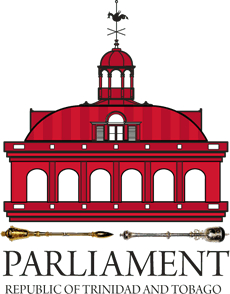ELECTRONIFICATION OF CUSTOMS TO COME SOON….
The Customs (Amendment) (No 2) Bill, 2011 was introduced in the House of Representatives on 9 November, 2011 by The Honourable Winston Dookeran, Minister of Finance.
The following is a brief explanation of some aspects of the Bill
The full text of the Bill is available in PDF format on this website, you can download it via this link. You may also place your comments directly on this Bill page, which can be accessed here.
What is Customs?
Customs is an authority or agency in a country responsible for collecting and safeguarding customs duties and for controlling the flow of all goods in and out of a country. Depending on each country’s individual legislation and regulations, the customs agency is responsible for enforcing rules.
Why do we need Customs?
The Customs and Excise Division play an important role in assisting Governments to achieve their national and international policy aims. They are responsible for judging whether the entry and exit of goods meet the requirements of the country’s laws. Through these laws under which the Division is empowered to act, they seek to facilitate trade, protect and collect all revenue due to the country, eliminate unfair trade practices and smuggling of illicit drugs, arms and ammunition.
What is the purpose of Customs laws?
Customs laws seek to equalize the charges imposed by other countries, furnish income for the government of Trinidad and Tobago, and preserve the financial stability of domestic industries.
What is the purpose of this Act?
The Act seeks to enhance border control by providing for advance passenger and cargo information to be submitted electronically to the Comptroller of Customs and Excise and for related matters
What are the key features of this proposed legislation?
- Enhances border control by providing for advance passenger and cargo information to be submitted electronically to the Comptroller of Customs and Excise and for related matters
- Prior to any departure or arrival, advance passenger information will be made available by the master of every ship or aircraft to the Comptroller. This will detail goods:
- in transit
- to be transshipped
- to remain on board for other ports of T&T
- Establishes a Customs Border Control System (CBCS) for the purpose of storing passenger and cargo information
- The Comptroller is responsible for overseeing the working of the CBCS . His duties include:
- Receiving all passenger and cargo information
- Forfeiture of goods not reported
- Refusing to grant clearance of a ship or aircraft until the necessary information is provided
- Approving and refusing applications for registration as users
- Registering of persons as users of the CBCS
- Granting of identifiers to registered users
- An offence is committed and is liable to penalty if:
- The master of the ship or aircraft, his agent or any cargo reporter
- fails to provide the necessary or accurate information intentionally
- causes bulk to be broken contrary to this Act
- allows goods/packages to be thrown overboard or opened after arrival
- Any person
- interferes in any way with information stored in the CBCS without the permission of the Comptroller
- fails to comply with the Comptroller concerning use or security of the identifier issued to the registered user
- uses an identifier without the permission of the registered user(if not a registered user)
- uses the identifier of another registered user
- makes unauthorized use of information stored on the CBCS
Important issues for consideration:
- Training of Customs Officers will be an integral component of enforcement of this legislation
- The master of every ship or aircraft has the responsibility of informing the Comptroller of advance passenger and cargo information. What is the impact for an overseas master without any presence in Trinidad and Tobago who commits this offence? Does an appointed local party assume legal responsibility for ensuring that accurate information is provided when a declaration is made under the Act?
- The proposed amendment extends liability to an agent for providing incorrect information. If the master has deliberately provided incorrect information to his agent should the provision apply only to the master and not both the master and agent?
- The Comptroller is responsible for registering persons as users of the CBCS and may approve or refuse applications
- What system will be implemented to ensure that all registered users use the identifier issued to them and ensure that unregistered users do not use their identifiers?
- Should a master, agent or cargo reporter be given a longer time frame to submit an account of all discharged cargo
- Severity of penalties
- Method for master to appeal for return of goods forfeited and refused by controller to grant clearance
- Should the Comptroller retain a record of every dated message for a period longer than four years, or is this period too long?
- Implications of allowing an electronic record of a data message as evidence, such as the possibility of data tampering.
